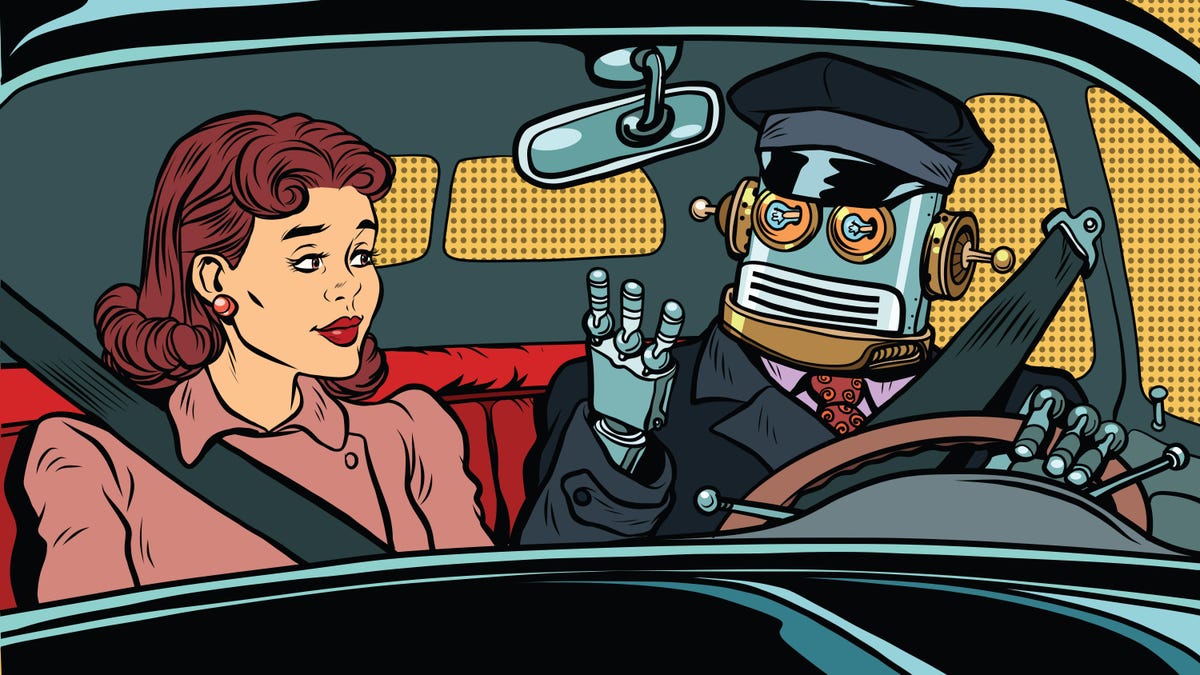
Last year, California gave autonomous vehicle companies Cruise and Waymo permission to operate driverless robotaxis on the streets of San Francisco. Almost immediately, the cars demonstrated they weren’t ready for the road. The taxis caused traffic jams, drove around in bizarre unpredictable patterns, and in at least one case, hit a pedestrian and left her with life-threatening injuries. Some of Waymo’s cars are still on the road. It turns out that amidst the chaos, these robot drivers had a special immunity. Driverless cars can’t get traffic tickets in California, no matter how badly they drive.
If you’re a human being driving around in California, you have to follow the rules of the road. Apparently, robots don’t. In accordance with state law, the San Francisco Police Department’s official policy is that driverless cars can’t get tickets for driving mistakes, as reported by NBC News.
Advertisement
The police department’s policy states that “At this time, no citation for a moving violation can be issued if the [autonomous vehicle] is being operated in a driverless mode,” according to Officer Paulina Henderson, a spokesperson for the SFPD. Police officers are allowed to pull a driverless car over if they observe a traffic violation, and they’re instructed to take down information including the owner of the vehicle and license plate information. However, officers can only give tickets for issues related to mechanical or registration violations.
Advertisement
That’s because California didn’t bother to update its laws before handing the keys to Waymo, which is owned by Google, and Cruise, owned by General Motors. These cars have gotten parking tickets because if you park illegally, the ticket goes to the person who owns the car. But in California, law enforcement can only give moving violations to the person operating the vehicle. If it’s an algorithm careening through the streets, apparently, it’s above the law—or at least above traffic laws.
Advertisement
According to a spokesperson for the California Department of Motor Vehicles, it’s up to the state legislature to update the laws. The DMV is responsible for updating safety and vehicle requirements within existing statutes, and is currently working to update regulations, the spokesperson said.
“The DMV recognizes that autonomous technology is an evolving technology and remains committed to enhancing the regulatory structure to reflect the continued development of the technology,” the spokesperson said. “The DMV encourages all interested parties to participate in future workshops and rulemaking processes to help inform and shape the regulations related to the safe operations of autonomous vehicles in California.”
Advertisement
Waymo did not immediately respond to a request for comment. Cruise declined to comment.
Other states permitted car companies to risk public safety with their driverless experiments, but some broke out the legislative pen to update the vehicle codes. In Texas and Arizona, two states where Waymo and Cruise also had cars on the road, the laws were updated to say that traffic tickets can go to the owners of a driverless car, even if there’s no one behind the wheel.
Advertisement
That seems like forward-thinking, given the recent robot driving records. Immediately after Waymo and Cruise started their 24-hour autonomous vehicle operations in San Francisco in August of 2023, reports emerged of unusual and unsafe driving patterns. Cars got stuck in wet cement, blocked traffic, hindered public transit, and made other illogical moves on the road. That same month, the city of San Francisco begged the California Department of Motor Vehicles to revoke Waymo and Cruise’s driverless permits.
The robotaxis sparked protest and a lot of good jokes, but the issue turned somber once the injuries started piling up. Cruise was the worst offender. In one incident, a Cruise autonomous vehicle slammed into a fire truck, injuring a Cruise employee who was in the car. Cruise’s cars struck pedestrians in two other incidents, including one that left an unnamed woman fighting for her life after a Cruise vehicle dragged her down the street. California officials later said that Cruise lied to the government about the severity of the accidents.
Advertisement
Fortunately for you and your children, Cruise pulled all of its driverless cars off the roads nationwide shortly thereafter. Waymo, however, still has its robot cars on the streets.
Services Marketplace – Listings, Bookings & Reviews